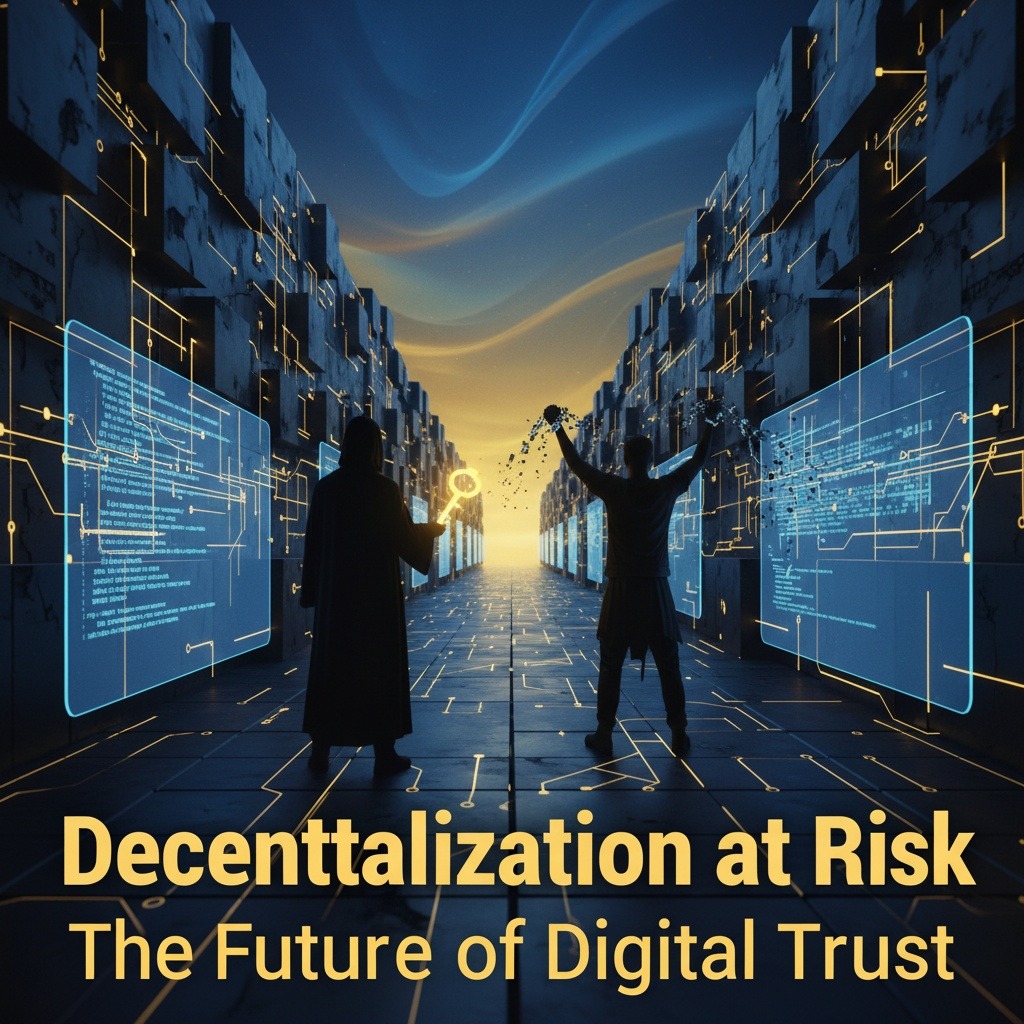The Bitcoin community is once again facing a deep rift over proposals for the network’s future. Recent discussions sparked by leaked messages from well-known developer Luke Dashjr have raised concerns about a potential upgrade that could establish a committee capable of censoring certain transactions. This controversial proposition risks contradicting Bitcoin’s foundational tenet of decentralization and censorship resistance.
On September 25, tech outlet The Rage reported that Dashjr is considering a hard fork that would create a “trusted” committee with the authority to retroactively remove illegal content from the Bitcoin blockchain. If implemented, this move could fundamentally alter the decentralized nature of a network that prides itself on allowing free transactions. Following the publication of the article, Dashjr took to social media to label the claims as “fake news,” yet did not deny the authenticity of the leaked messages verified by video records.
Eyal Gruper, the CEO of cryptocurrency self-custody platform RITREK, weighed in, stating that such a multisig committee would “break that neutrality.” He emphasized that allowing a select few individuals to dictate transaction validity undermines the very essence of Bitcoin. “The moment people, not the protocol, decide what’s valid—Bitcoin stops being Bitcoin,” he concluded.
Equally concerned, Eneko Knörr, who co-founded the yield-bearing stablecoin project Stabolut, articulated that allowing a committee to manage transaction approval challenges Bitcoin’s hallmark features of freedom and neutrality. He underscored the importance of Bitcoin’s censorship resistance, stating that “no one is in control” is what gives Bitcoin its strength in the financial ecosystem.
The debate around transaction censorship is intensifying, particularly with the rise of Ordinals and Inscriptions, which have reignited discussions about Bitcoin’s main functionality. Despite the temporary network congestion and increased fees that these developments caused, Knörr remarked that the network has since adjusted, calling into question the necessity of extreme changes to the operational framework.
The upcoming release of version 30 of Bitcoin’s core client introduces alterations to how nodes manage data through the OP_RETURN transaction field, which is currently employed to attach small metadata bits to transactions. Dashjr, along with advocates of an alternative node client called Bitcoin Knots, has issued warnings that these changes might facilitate the spread of inappropriate content, further complicating the issue.
Concerns about illicit content on the blockchain are not new. Research from RWTH Aachen University published in 2018 revealed that Bitcoin’s blockchain inadvertently hosted a variety of non-financial content, including abusive material. The presence of such data raises potential legal complications in various jurisdictions, illustrated by findings that included objectionable files. The implications of these findings underscore the difficulties Bitcoin faces in balancing innovation with ethical concerns.
As the community debates the proposed upgrade, reactions continue to reveal the intense division within. Blockstream CEO Adam Back expressed his trepidation, stating that the proposal appears to “jump straight to the censorship technology” associated with previous warnings from industry leaders.
As the situation unfolds, the Bitcoin community stands at a crossroads, with core principles of decentralization and freedom at stake. The outcomes of these discussions will likely shape not only the future of Bitcoin but also its role in the broader cryptocurrency ecosystem.



